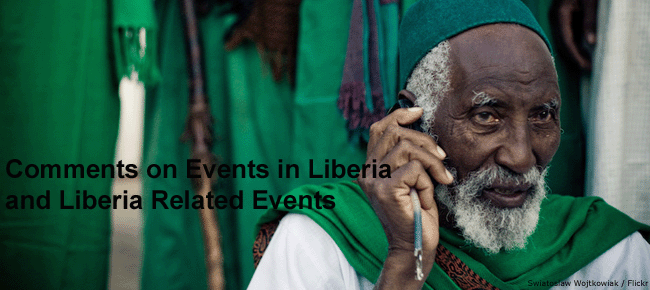Addition to my March 1 posting on 'Bullet or ballot propelled changes in Africa'
There are over 50 'countries' in 'Africa' - the smallest being the Seychelles, population wise, the biggest of course Nigeria - so the fact that I missed two countries in my last posting may be pardoned. Nevertheless, a serious error. Since I was focusing on the countries where presidential elections would be held I did not mention the two Presidents who as far back as 1979 (!) assumed the Presidency: Angola's President José Eduardo dos Santos and Equatorial Guinea's President Teodoro Obiang Nguema Mbasogo, who became President in a coup that led to the execution of his deposed uncle, Francisco Macías Nguema.
Nowadays 67-year-old José Eduardo dos Santos, who succeeded Agostinho Neto who had died in office, is known as Angola's silent leader. Presidential elections are not held in the country. President Teodoro Nguema suffers from prostate cancer and prepares his corrupt playboy-son-turned-minister Teodorin for the Presidency of this oil-rich country, Africa's Kuwait. Very recently, 'Teodorin' came into the news because of his purchase of a 375 million dollar yacht. But who's to blame? The 'bad guy' Teodorin, the oil companies, the Swiss banks or the German shipyards?
By the way, this dynasty thing of African leaders, I don't get it. When Gabon president Omar Bongo, Africa's longest ruling President, died in June 2009, he was succeeded by his son Ali . Four years earlier Togolese President Eyadéma had died and he was also succeeded by this son, Faure Ngassingbé. And when in 2001 President Laurent Kabila was shot - by one of his security guards - his son Joseph still managed to get a popular vote allowing him to rule as the president of this vast Central African country. Wikileaks recently revealed that Joseph Kabila bribed members of the Congolese Parliamant to ensure his forthcoming re-election, in November of this year.
Some people have qualified the present decade as 'The Scramble for African Oil' - referring to the Scramble for Africa, the colonial conquest of Afica, as from the 1880s onwards. Of course, it is not only oil. Also coltan, for instance, in Eastern Congo, which keeps the war in this vast Central African country going.
So far, we only dicscussed African presidents and no kings, although the line between them seems to be thin. Consequently we haven't mentioned King Mwsati III of Swaziland who rules since 1986.
There seems to be a big gap between the populace and the elite - in almost every African country - and where leaders are not inclined to listen to the people, their day will come.
A big question remains: How to judge people who with the connivance of Swiss bankers, Western oil companies, and European and US political leaders - who sought their own interests - took advantage of the circumstances and enriched themselves, illegally.
The ballot or the bullet????
Some people have qualified the present decade as 'The Scramble for African Oil' - referring to the Scramble for Africa, the colonial conquest of Afica, as from the 1880s onwards. Of course, it is not only oil. Also coltan, for instance, in Eastern Congo, which keeps the war in this vast Central African country going.
So far, we only dicscussed African presidents and no kings, although the line between them seems to be thin. Consequently we haven't mentioned King Mwsati III of Swaziland who rules since 1986.
There seems to be a big gap between the populace and the elite - in almost every African country - and where leaders are not inclined to listen to the people, their day will come.
A big question remains: How to judge people who with the connivance of Swiss bankers, Western oil companies, and European and US political leaders - who sought their own interests - took advantage of the circumstances and enriched themselves, illegally.
The ballot or the bullet????


1 comment:
Fred would love to contact you related to OAU in 1979 and other matters. Could you send me an email so we could make contact? I would greatly appreciate it.
Post a Comment